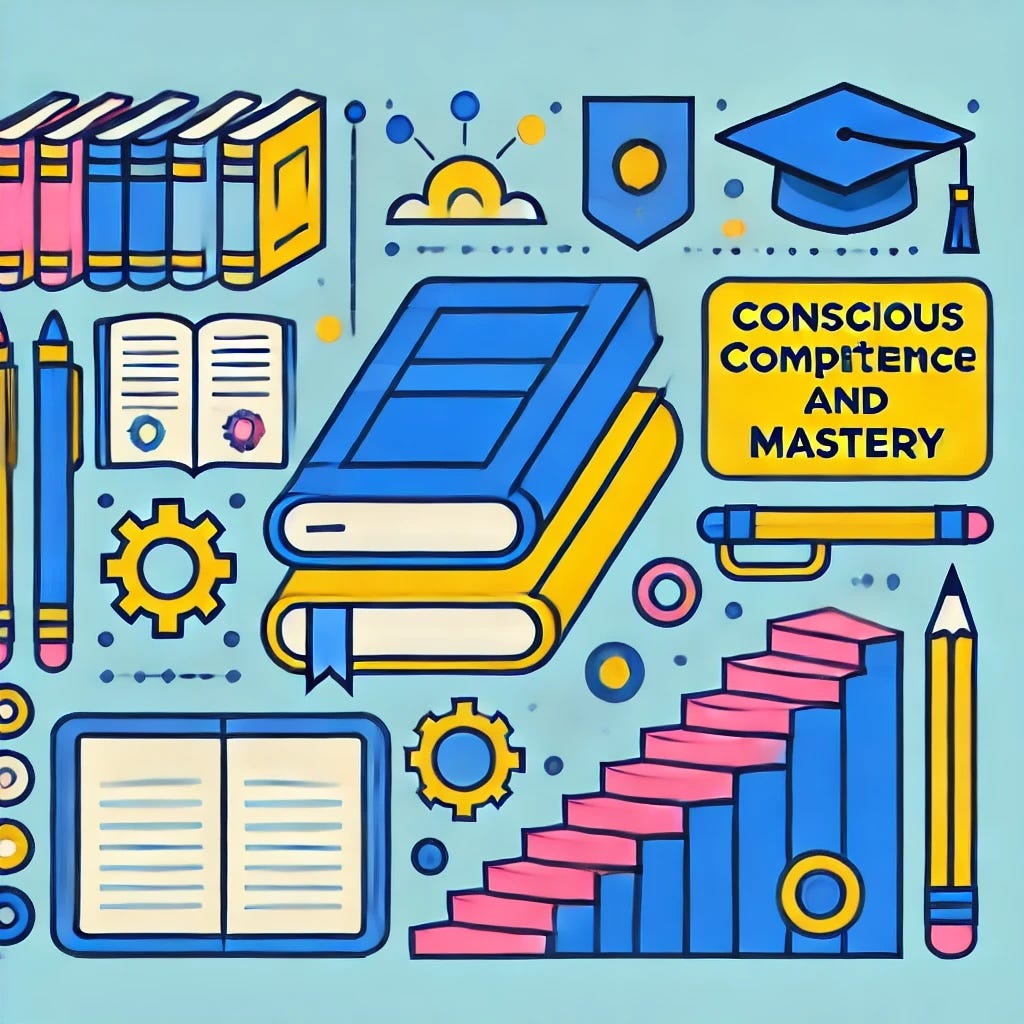Should you write about what comes naturally? Here’s why I’m not so sure
Why mastering struggle might make for a better book
“Ohh, you should TOTALLY write a book about that. You’re so good at that!”
I think we often assume that we should write a book about what we’re good —what we’re an expert on. I mean, that’s why the word author is the root word for authority, right?
But here’s what I’ve realised: writing from a place of unconscious competence can actually make it harder to connect with readers.
When something feels second nature, breaking it down into digestible steps isn’t so simple.
And if you’re miles ahead of where your readers are starting from, empathising with their challenges can be surprisingly tricky.
I think my first book, The 2-Hour Workshop Blueprint was written from “my zone of good” (not my zone of genius).
I had to experiment, stumble, and eventually build a system (which became the blueprint) because, honestly, I was very slow at designing workshops. I needed to speed up. Constraints pushed me to refine a method that others could use.
That’s why, for my next book, I’m going to again, not focus on what comes effortlessly.
Instead, I want to write from a place of conscious competence.
It’s that sweet spot where you’ve got a hand of the skill/topic, but you’re still aware of each step it took to get there.
You can remember the stumbling blocks, the “aha” moments, and the process that makes it teachable. It’s real, relatable, and most importantly, useful for readers.
You might’ve heard of the “Ladder of Learning”—a simple way to describe how we progress from unconscious incompetence (where we don’t know what we don’t know) to conscious incompetence (where we become aware of what we need to learn), and then to conscious competence (where we know what we’re doing but still have to think about it) before we finally reach unconscious competence, where it all feels second nature.
When something’s at that “unconscious competence” level—like driving without thinking about it—it’s hard to explain in detail to others.
But when we’re “consciously competent,” there’s awareness.
We’re skilled, but we remember exactly what it took to get there. That’s the kind of knowledge I think makes for a good book topic.
Here’s three reasons why:
Empathy gap: When something comes naturally, it’s tough to empathise fully with those learning it for the first time. If I’m unconsciously competent, I haven’t had to grapple with the same challenges or questions the reader might face. A book from “conscious competence” is different—I’m still close enough to remember the pitfalls and breakthroughs.
Teachable process: Skills that we’re consciously competent in are easier to break down. There’s a real process to share because we’ve had to figure it out ourselves. When you try to explain something you’re unconsciously competent at, you often miss steps. Writing from conscious competence means I can map out those steps clearly, and they’ll make sense.
Relatability: A book born from exploration and personal insight resonates more. It’s richer because it’s alive with details and the sense of learning as you go. Readers don’t pick up books for what’s easy; they want to know the roadmap for tackling what’s hard. Sharing from a place of “I’ve been there, too” is what makes a book feel grounded and human.
Question:
Would you agree? Have you ever tried to teach something that’s part of your DNA, only to find the words just don’t come?
p.s. I’m posting this from the skies, 1.5 hour into my flight from BNE to Vegas, just ducking over Noumea now. Fun!




